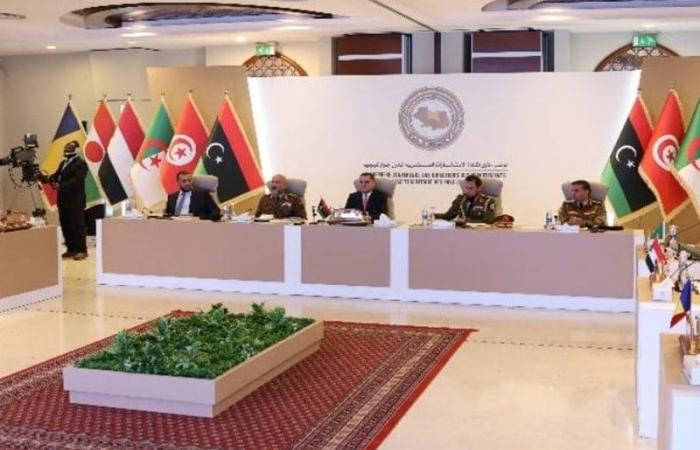Libya, a country so accustomed to playing in the minefields of geopolitics, recently hosted a rather singular gathering: the heads of its neighbors' intelligence services. Algeria, faithful to its habits of spectacular but discreet appearances, dispatched a high-ranking military delegation to Tripoli. Officially, it was about talking about the fight against terrorism, drug trafficking and illegal immigration… But, as always, reality surpasses fiction.
A conference full of mysteries
This weekend of December 21 and 22, officials from the intelligence services of Algeria, Tunisia, Sudan, Chad and Niger met to discuss “regional cooperation” and “common challenges”. Nothing very surprising except that, on the Algerian side, there is radio silence. Indeed, this meeting was carefully avoided by the official press releases from the Ministry of National Defense of good old Chanegriha. Why so much mystery? Perhaps because the Russian presence in Libya, omnipresent but denied, was implicitly present in the discussions.
Ultimately, this conference in Libya in Tripoli will have been just another pretext for behind-the-scenes maneuvers where foreign powers are redrawing the fault lines in the region. As for the senile regime on the balcony of the Muppets show made in Algeria, it remains true to itself: unpredictable, ambiguous and always quick to play the balancing act on the international stage.
As delegations discuss the security challenges in Tripoli, another question arises: to what extent do these neighboring countries really control their own destiny? Libya, plunged into permanent chaos since the fall of Gaddafi, has become an arena in which the great powers, led by Russia, test their strategies. For Algiers, participating in this meeting amounts to walking a tightrope. Regional coordination is essential, but each step brings Algeria closer to Russian interests that it tries to keep at bay.
Since the Syrian regime of Bashar al-Assad collapsed like a house of cards, Moscow has been working to redeploy its forces and equipment. His destination? Libya, of course, where Russia hopes to transform its military presence into real strategic leverage in the Mediterranean. Faced with these maneuvers, Algeria, which likes to brandish its attachment to unblemished territorial sovereignty, finds itself in a delicate position.
Yes, would the regime of the senile capos of Algiers, which makes the rejection of any foreign military presence near its borders – especially those of the West – a dogma, have given in to the demands of the Kremlin's emissaries? The latter, invested with a high-ranking political mission, recently met the puppet of Algiers, the poorly named president, under the watchful eye of his puppeteer on duty, the capo of capos Saïd Chanegriha. This is what it seems and strangely, the Kremlin seemed to want to convince the senile duo of Algiers to accept this discreet, but strategic transfer of equipment and troops.
Russia-Algeria: “I love you neither…”
Never mind! In any case, Moscow will not wait for approval from Algiers before advancing its pawns in Libya or elsewhere. In this complex game, Russia seems to be playing on two sides. On the one hand, it reassures Algiers about the limited nature of its ambitions. On the other hand, it imposes faits accomplis, hoping that Algeria, uncomfortable but powerless, ends up coming to terms with this new situation.
And, if our two seniles next door cling to their sovereignist posture, the reality is much more cynical: their capacity for influence is crumbling and Russia is moving forward without permission or compromise. Indeed, Moscow seems less concerned by Algerian sensitivities than by its overall strategy: securing its positions in the Mediterranean and the Sahel, even if it means trampling on the principles brandished by the regime in khaki Algiers.
For the Algerian totalitarian regime, the situation is a geopolitical puzzle. Discreetly supporting Russia would maintain a strategic relationship with a long-time ally, while avoiding opening a front with its Libyan neighbors. But any concession that is too visible would jeopardize the image of a sovereign and resistant Algeria in the face of foreign interference.
This situation exposes an Algeria stuck between two illusions: that of an oversized power that it no longer has, and that of a sovereignty that it cannot guarantee. And, while Algiers plays the balancing act in Libya, the rest of the Maghreb looks with amusement (or dismay) at a neighbor who, instead of imposing itself, is diluted in the ambitions of others.






